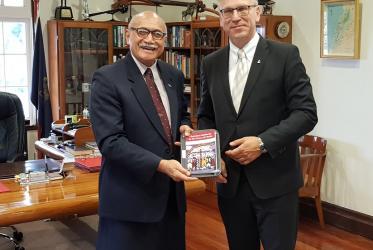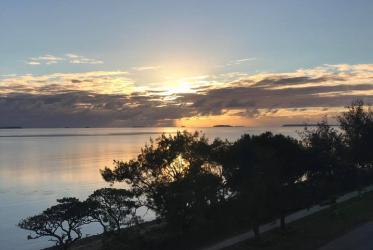Displaying 81 - 100 of 142
Hopes shared in Tonga, where dawn starts first
06 August 2017
“Overcoming economic injustice” vision of WCC’s Athena Peralta
23 February 2017
WCC mourns the death of Polynesian nuclear fighter John Doom
28 December 2016
New videos help congregations hasten HIV response
20 October 2016
New Executive Committee members elected in Trondheim
28 June 2016
Voices from HIV workshop reflect deep impact
07 April 2016
In wake of Fiji cyclone, WCC extends prayers, condolences
24 February 2016
"I hit the ground running": Katalina Tahaafe-Williams
16 February 2016









